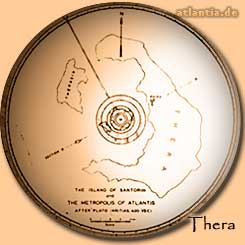I
IlluSionS667
Guest
An example of an Egyptian diorite vase : http://www.egyptianmuseum.gov.eg/details.asp?which2=595 (the vase on the left of the image)juantoo3 said:I am not familiar with these, do you have any examples?
Diorite is an extremely hard material similar to granite. How the **** did they make such beautiful vases out of such material?
According to several websites, bones have been found of humans that would have been about 8 foot. As it is practically impossible to find info about this from regular scientific sources, I'm not aware of the credibility of these statements.juantoo3 said:I am not familiar with the Eddas, and only cursory info about the Romans, but "giants" seem to be a recurring concept in several cultures, not least the race of giants from which Goliath was decended. There would seem to be a thread drawn between this race and the fallen "Nephilim."
The head could be carved out at 2500 BC, but not the body. The body is much older than the head, and that can be deducted from the severe erosion caused by rain (!) as I said, and by the restoration works that were done thousands of years ago.juantoo3 said:I understand this puzzle to be a source of academic conflict. The date I have seen places the Sphinx construction at or near the construction date of the Great Pyramid, 2500 BC +/-.
So have I. I still wonder whether it is as accurate as some claim it is, or not...juantoo3 said:I have long been facinated with the Piri Re'is map.
The Maya calendar seems to have been the center of their civilisation. Why? And why did such a seemingly advanced people get extinct because of draught?juantoo3 said:I have not heard of this before, can you provide anything to demonstrate?
My main interests just switch subjects every now and thenjuantoo3 said:Likewise. The subject has been a source of fascination for a long time, but struggling through the flaky stuff to get to the core material kinda put me off for a while.
First of all, what did Plato really know? And how much of his story should be taken literally and how much should be read symbolically?juantoo3 said:I understand the plate tectonics/continental drift concept, but Antarctica is a bit of a puzzle in this. If the current thinking is correct, Antarctica drifted from the eastern side of Africa, which would seem to me the opposite direction from the place Plato suggested.
Second, there is a theory that can explain what happened 12000 years ago, and what will happen in the future too. There's a theory called "Earth Crust Displacement theory". It predates plate tectonics theory, and has been rejected ever since plate tectonics became school book material. However, some people suggest that earth crust displacement and plate tectonics don't exclude each other, and that both are real.
About the Earth Crust Displacement theory : http://www.lauralee.com/rflemath/ecd.htm
For Antarctica to be the lost continent, earth crust displacement should happen in a very short time. If this does take place, one may ask what's the cause? That's something Hapgood (the one who came up with this theory) and Einstein already were discussing about a few decades ago.





